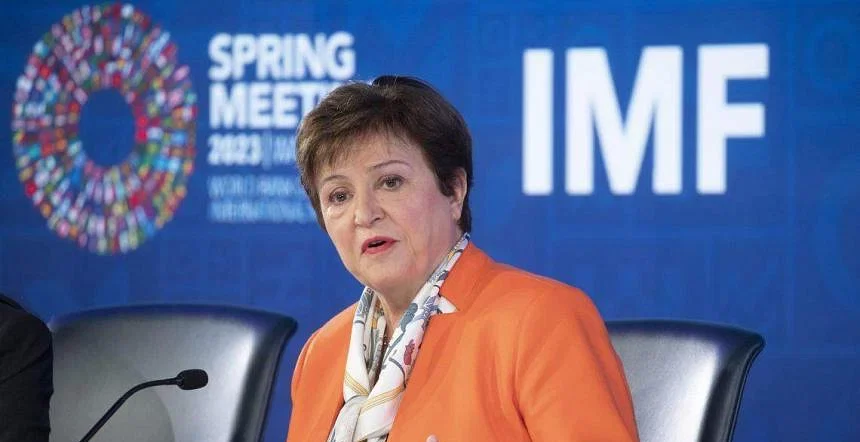The International Monetary Fund (IMF) announced on June 7 a staff-level agreement with Egypt, outlining the policies adopted and actions to be taken over the next six months to complete the third review of the $8 billion Extended Fund Facility (EFF) loan program.
An IMF mission led by Ivanna Vladkova Hollar held in-person discussions with Egyptian authorities from May 12-26 in Cairo, followed by virtual sessions.
The IMF approved a $3 billion loan for Egypt in December 2022 in response to the government’s request to address the fallout from the Russia-Ukraine conflict that began in May 2022. Economic challenges, worsened by the Gaza conflict starting in October 2023, hindered Egypt’s compliance with program reviews for over two years.
Egypt requested the IMF to increase the loan amount by $5 billion to reach $8 billion, aiming to fulfill its obligations, bolster foreign exchange reserves, and address macroeconomic imbalances.
The loan program comprises eight reviews, with the IMF having completed the first two. The third review is pending approval by the Fund’s Executive Board. Tranches of these reviews are disbursed after the initial $3 billion deal, with subsequent reviews every six months, each providing a tranche of approximately $1.3 billion.
Key policies
The IMF and Egypt have agreed on key policies shaping the country’s economic landscape through December, aligning with commitments in the loan program:
*Enhancing the private sector’s role in economic activity and tackling challenges like high inflation, government debt, and gross financing needs.
*Implementing government reform plans to maintain macroeconomic stability and foster private sector-led growth.
*Achieving ambitious primary balance targets to strengthen public finances and mitigate debt sustainability risks.
*Improving fiscal consolidation through increased domestic revenue mobilization, including rationalizing VAT exemptions.
*Managing fiscal risks, particularly with state-owned energy companies, to restore cost recovery gradually.
*Enhancing debt management to reduce gross financing needs and improve debt reporting and investor relations.
*Continuing monetary policy tightening to bring inflation towards the Central Bank of Egypt’s target of 7% (±2%) by the fourth quarter of 2024.
*Strengthening financial sector resilience and governance practices, along with promoting competition in the banking sector.
*Accelerating state-ownership policy implementation to support private sector-led growth and improve the business environment.
*Modernizing trade facilitation procedures to increase efficiency and remove trade barriers.
*Ensuring proper management of potential capital inflows to avoid disruptive macroeconomic challenges and promote economic diversification and inclusive growth.
*Developing contingency plans to address any challenges that may arise.
FDI boost
The IMF mission emphasized that the Central Bank of Egypt’s exchange rate unification implemented on March 6 has enhanced the country’s financing conditions. It highlighted the positive economic impact of the $35 billion Ras El-Hikma development deal signed with the UAE in February.
Furthermore, the mission noted Egypt’s commitment to maintaining macroeconomic stability through policies such as fiscal discipline, tight monetary policy, and transitioning to a flexible exchange rate regime.
In this context, the mission encouraged the authorities to maintain transparency by disclosing information about the Ras El-Hikma project.
Challenges ahead
The IMF mission underscored the geopolitical tensions in the region and their implications for Egypt, including persistent trade disruptions in the Red Sea. These challenges continue to negatively impact Suez Canal receipts, posing ongoing economic challenges for the country.






